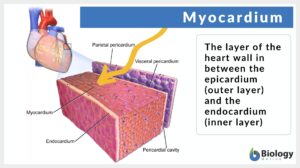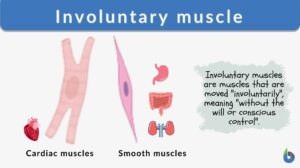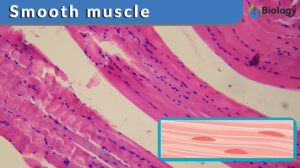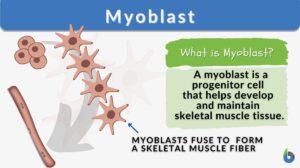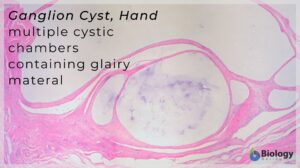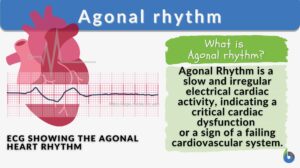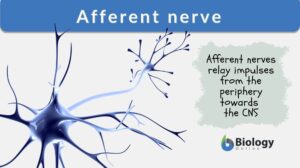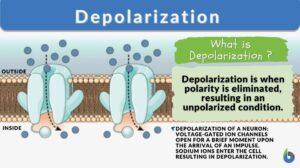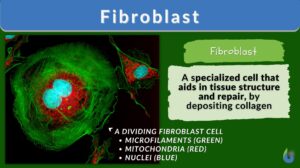Search Results for: cardiac muscle
Cardiac muscle
Definition noun, plural: cardiac muscles (1) The heart muscle of the vertebrates (2) myocardium Supplement The muscles of... Read More
Muscular system
Muscular System Definition What is the muscular system? The muscular system is a system that includes muscle cells and... Read More
Myocardium
Myocardium Definition What is the myocardium of the heart? It is the muscular middle layer of the heart that is... Read More
Involuntary muscle
A muscle act typically either under the control of the will or without conscious control. Muscles that can be controlled at... Read More
Smooth muscle
The smooth muscle can be described as a type of muscle in the human body that is non-striated and involuntary in action.... Read More
Circulation
Blood Blood is composed of a liquid, plasma, and blood cells such as erythrocytes (red blood cells,) leukocytes (white... Read More
Endoplasmic reticulum
Endoplasmic Reticulum Definition The endoplasmic reticulum is a membrane-bound organelle in cells of eukaryotic cells... Read More
Hypertrophy
Hypertrophy Definition Hypertrophy refers to the enlargement or increase in the size of an organ or tissue due to the... Read More
Muscle tissue
Definition noun, plural: muscle tissues An animal tissue capable of contracting, and therefore enables movement or tension... Read More
Skeletal muscle
Definition noun, plural: skeletal muscles A voluntary, striated (vertebrate) muscle that is associated with the skeleton,... Read More
Voluntary muscle
Definition noun, plural: voluntary muscles A muscle that can be controlled voluntarily Supplement Some of the muscles of the... Read More
Sarcoplasmic reticulum
Definition noun plural: sarcoplasmic reticula (cell biology) The special type of smooth endoplasmic reticulum found in... Read More
Homeostasis
Homeostasis is the tendency not to stray from the range of favorable or ideal internal conditions. Such conditions must be... Read More
Muscle cell
Definition noun, plural: muscle cells Any of the long, tubular mature contractile cells that make up the muscle... Read More
Striated muscle
Definition noun, plural: striated muscles A muscle that is made up of long fibers characterized by transverse or oblique... Read More
Starlings law
Definition noun Starling’s law states that the force of contraction depends on the length of muscle fibers of the heart... Read More
Fixator muscle
Definition noun, plural: fixator muscles (anatomy) A muscle that serves as a stabilizer of one part of the body during... Read More
Agonal rhythm
Agonal Rhythm Definition Agonal rhythm is the slow, irregular heart rhythm (electrical activity of the heart), particularly... Read More
Regulation of Organic Metabolism, Growth and Energy Balance
Organic Metabolism Events of Absorptive and Post-absorptive States. The absorptive state is the period during which... Read More
Peristalsis
What is Peristalsis? Peristalsis is the series of involuntary, wave-like muscle movements in the cylindrical, hollow tube... Read More
Afferent Nerve
Afferent Nerve Definition The word ‘aferent’ means "steering or conducting something towards a destination". The... Read More
Depolarization
Depolarization is the removal of polarity by a process or action. It might also be used to describe how such activity leads... Read More
Ventricular syncytium
Definition noun A network of cardiac muscle cells connected by gap junctions that allows coordinate contraction of the... Read More
Atrial syncytium
Definition noun A network of cardiac muscle cells connected by gap junctions that allows coordinate contraction of the... Read More
Staircase phenomenon
staircase phenomenon --> treppe A phenomenon in cardiac muscle first observed by H.P. Bowditch; if a number of stimuli of... Read More
Gap junction
Definition noun, plural: gap junctions A type of cell junction characterized by the intercellular channel that is formed in... Read More
Neural Control Mechanisms
Nerve cells called neurons generate electric signals that pass from one end of the cell to another and release chemical... Read More
Fibroblast
The building block of living things is known as the cell. The cell contributes to many parts and functions of different... Read More
Mitochondrion
Mitochondrion Definition What are mitochondria? The term “mitochondrion” comes from the two words of the Greek... Read More
Eukaryotic cells
Eukaryotic Cells Definition What is a eukaryotic cell? Eukaryotic cells refer to the cells of (or derived from) eukaryotes,... Read More


